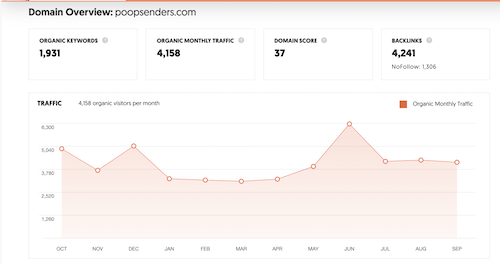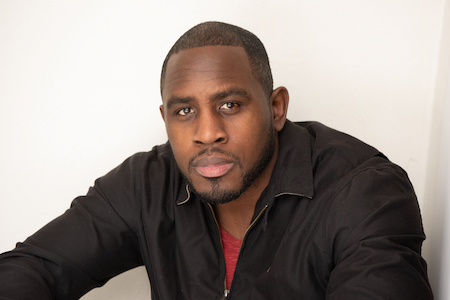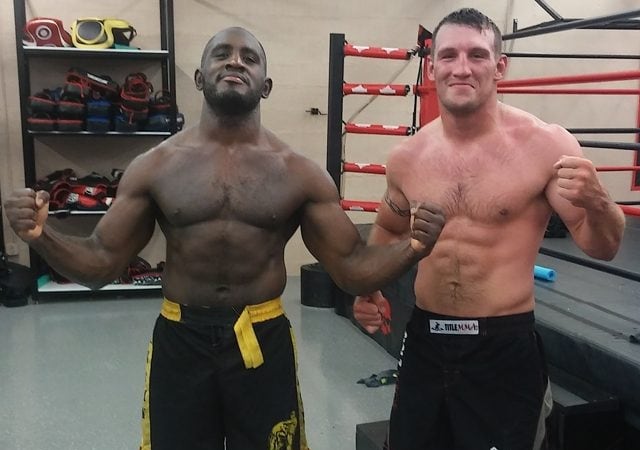“Do something you love, and you’ll never work a day in your life.”
This is one of those inspirational quotes that’s supposed to lead you to personal growth and a happy life.
We’ve all heard this conventional wisdom. Each of us is supposedly destined to enjoy an activity we can make a living doing. Well-meaning family, teachers, coaches, and friends told us that life’s real adventure begins the day we find our passion—or it finds us.
Reality paints a different picture. A recent Gallup poll found that only 15 percent of people enjoy their work. That’s it. Only 15% of people get find happiness in what they do for a living.
That’s it.
“Do what you love” is a good motivational quote, but it might not be the best advice to find happiness.
Do what makes you happy is bad advice. Why?
People who think “I’ll do what makes me happy” are operating on one of four well-meaning assumptions that sound good, but do nothing to help you live the life of a happy person. All four assumptions are wrong.
- “What I love will make me money.” There are a lot of things I love to do. There are very few of them that I can make money doing. I’m lucky that I love writing and social media AND that I’ve been able to make money doing it, but it’s taken a long time. Most people will not be that patient or lucky
- “The more I love something, the more money I should make doing it.” If you wake up excited to work, you’ll probably perform better. However, a better performance means nothing if people don’t value the work. Nothing makes you hate doing what you love for a living more than finding out that it’s economically worthless.
- “The best way to make money is by starting with something you love.” The truth is that more you love doing something, the more apprehensive you should be about trying to get paid to do it. Right now, you’re doing it out of self-love. In the short term and it being tied to your livelihood, it’s fun. The moment you’re forced to do it, then it will lose some of its enjoyment.
- “If you never find what you’re passionate about, you’ll never be successful.” If you’re never a top performer, you won’t ever be successful. It is easier to be a top performer if you love what you’re doing, but you don’t need to start with that love. You need to start with a dedication to building your skills. Love will come later.
Let’s briefly look at why all four assumptions don’t lead to a happier life.
I love my woman. We don’t measure the success of our relationship by how much money we earn as a couple. Financial stability is important in a life partnership, sure. Yet nobody dates or marries expecting to make money from the relationship itself.
What about starting with a passion and seeing where it takes you? Well, several friends of mine run online stores that make 6-figures per month. Are they passionate about the products? No. They really don’t care. Some never even used the products they’re now selling before they got into e-commerce.
In fact, I know several online stores where you can get poop sent to people as pranks. Judging by the traffic these stores receive and the prices they charge, converting just 10% of their monthly visitors to customers is an easy 6 figure/yr income–and the conversion is likely more since people don’t just stumble onto a site like this.

Clearly, passion is not a prerequisite for entrepreneurship either. So what should you do to find true happiness in your outside of trying to be happy?
To be happy, don’t try to be happy. Try to be skilled instead
Most of us are not fortunate enough to stumble into a labor of love that also happens to make money, enhance our quality of life, and allows us to spread positivity to our surroundings. We need a different way to find work with personal meaning, financial reward, and that enables to enjoy life.
It turns out, that way has been here all our lives. It’s just gone unnoticed. Somewhere between toddler and teenager, we forgot an obvious life lesson: You are more likely to enjoy something you’re good at.
Intuitively, we understand this. In practice, we often try to accomplish this in reverse order: we try to find happiness first, and then we try to get good at it. Getting this order wrong may seem like a little thing but it makes a huge difference in the approach you take to finding happiness and adding meaning to your life.
A challenge may not be fun at first, but it becomes fun as we learn. The more we learn, the better we do, the more we enjoy it. We discover what we love to do by becoming good at doing it.
Without learning a new skill, adding to our knowledge, or gaining new experiences, it’s impossible to have a happy life. As the subtitle of Cal Newport’s So Good They Can’t Ignore You says, “Skills trump passion in the quest for work you love.”
Cal Newport debunks the common belief that “follow your passion” is good advice. He he believes that:
Matching your job to a preexisting passion does not matter, he reveals. Passion comes after you put in the hard work to become excellent at something valuable, not before. In other words, what you do for a living is much less important than how you do it.
The only way to get better at something is to spend time being bad at it. You make mistakes, improve, and repeat.
Granted, making mistakes is not something people are passionate about. But to get good enough at something to love it, you have to make a lot of them. If you chase happiness before you developing ability, you will never catch happiness or develop skill.
What happens if you do what makes you happy before you build skills?
If you only try to do things that make you happy, you’ll have one of two possible outcomes.
1) You’re successful doing what makes you happy
This is highly unlikely.
Most of us are not born in the right place, at the right time, with the right abilities. You need to not only possess natural talent but also be lucky enough to stumble into an opportunity to capitalize on that talent.
These magical alignment stories are so rare they get made into movies. It’s the trope older than Hollywood—an average Joe or Jane comes out of nowhere, shows off their secret talent, and has to juggle the onslaught of fame.
These stories may be motivational but they aren’t realistic. Or, at the very least, they aren’t realistic enough for you to attempt to build a better life around.
While it can be attractive to bet on your own luck, consider this: many common jobs today didn’t even exist fifteen years ago. What potential employers, clients, and customers consider “talent” changes every few years. Trying to monetize your passion may be like waiting for a ship that’s long sailed.
To put this in perspective, I’ll tell you a short story from my days as a math tutor:
A student of mine once said to me, “My iPad is down, so I had to download the book to my smartphone to read it.” No part of that sentence besides “book” existed fifteen years ago. Now, each provides untold opportunities.
Only those who are willing to make mistakes as they learn can pick up the experience needed to get good enough to enjoy it—and make money doing it.
2) You’re constantly discouraged, disappointed, and let down by trying to do what makes you happy
You must stick with something through the shitty parts and learn from necessary mistakes. Otherwise, you’ll never be more than a novice in all trades.
Instead of stepping out of your comfort zone and staying there until you get better, you give up way too soon because you equate growing pains with misery. You abandon your goal because improvement is too painful, thus you never fall in love with it.
This response to pain makes sense when you think about it.
Most people who listen to conventional wisdom about work also believe that love never has painful moments. That seems sensible though. After all, if you loved this thing, why would it hurt you? The go-to answer is that it wouldn’t. If it makes you feel bad, it must not be worth pursuing. This conclusion results in giving up on a new skill too soon.
While not all skills are created equal in terms of financial leverage, spending time on a skill and progressing past the novice stage always has a benefit. If you only stick with something when it feels good, you’ll spend your life floating from skill to skill. You’ll be a jack of all trades, but not even moderately skilled at any of them.
Purposeful work, curiosity, & the power of grit: The secret to finding your own happiness
The missing ingredient in the “do what makes you happy” idea is purposeful work. Purposeful work requires curiosity and grit.
Learning and working for its own sake more important than happiness. In fact, this will actually make you happy and find love within task.
That’s how you fall in love with another person. There’s just something about the other person that makes you have to know more. That’s how it is with work. Let curiosity about the subject matter carry you.
Curiosity will drive you to do what makes you happy, but you’ll also need grit to stay the course when the learning process gets tough. Angela Duckworth explains why grit helps us develop a positive attitude and will help us find what actually makes us happy:
Grit is important because it is a driver of achievement and success, independent of and beyond what talent and intelligence contribute. Being naturally smart and talented are great, but to truly do well and thrive, we need the ability to persevere.
Without grit, you’ll never be a happy person, even if you have talent. Grit and curiosity will do more to make you happy than talent and luck.
Embrace the learning process, make mistakes, and improve, and your abilities will increase. Your increased abilities give you certain advantages. These abilities improve your mental health, make you feel better about yourself, and thus makes you feel better about your skills.
You’re now doing something that makes you happy.
The value of learning is that it allows you to contribute to the world. This contribution makes you feel good about yourself. Then you can be happy and passionate about the skill. If you seek happiness and passion first, then you will be disappointed every time the task gets difficult and unpleasant.
A new learning curve is steep, but you will never be good at anything if you don’t endure the initial suffering. The greatest value of learning is that it creates love in yourself and for yourself. This love, extended to your surroundings, makes the world a better place.
To be a happier person, don’t do what makes you happy
Instead, try your hand (or mind) at something challenging. Or pick up where you left off.
I had a knack for writing as a kid but thought nothing of it until I went back to school for physics. Writing long, complex essays on topics sharpened my dulled abilities. If I wanted my degree, quitting wasn’t an option. So I kept writing.
My professors complimented my papers. A few encouraged me to write outside of school. I did. Yesterday, 2.000 people visited my website to read what I’ve written about breaking free from addiction, supporting their dreams with a side hustle, taming destructive thoughts and emotions, and more.
Yesterday, like every day, several people reached out to me thanking me for what I wrote. It’s great that my website makes money, but to read how something I wrote changed a person’s life for the better is the real reward.
It can be for you, too, as long as you keep after it.
Stick with something and make the world a better place. The rest is up to you.




